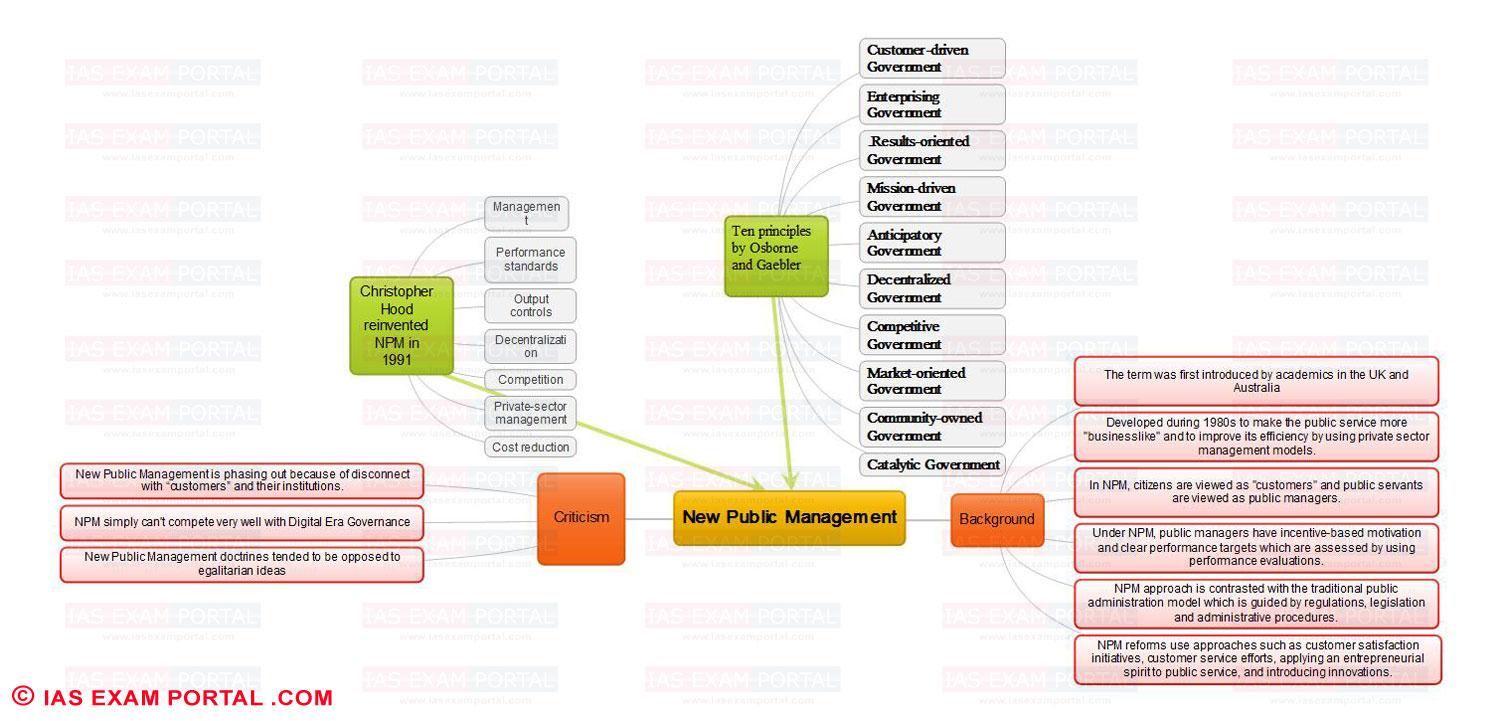Mind Maps for UPSC Public Administration (New Public Management)
Mind Maps for UPSC Public Administration (New Public Management)
Click Here to Download Full MAP in PDF
Study Kit for Public Administration for IAS Mains Exams
Online Crash Course for Public Administration Mains Examination
Mind Map Important Topics:
New Public Management
Christopher Hood reinvented NPM in 1991
- Management
- Performance standards
- Output controls
- Decentralization
- Competition
- Private-sector management
- Cost reduction
Ten principles by Osborne and Gaebler
- Customer-driven Government
- Enterprising Government
- .Results-oriented Government
- Mission-driven Government
- Anticipatory Government
- Decentralized Government
- Competitive Government
- Market-oriented Government
- Community-owned Government
- Catalytic Government
Background
- The term was first introduced by academics in the UK and Australia
- Developed during 1980s to make the public service more "businesslike" and to improve its efficiency by using private sector management models.
- In NPM, citizens are viewed as "customers" and public servants are viewed as public managers.
- Under NPM, public managers have incentive-based motivation and clear performance targets which are assessed by using performance evaluations.
- NPM approach is contrasted with the traditional public administration model which is guided by regulations, legislation and administrative procedures.
- NPM reforms use approaches such as customer satisfaction initiatives, customer service efforts, applying an entrepreneurial spirit to public service, and introducing innovations.
Criticism
- New Public Management is phasing out because of disconnect with “customers” and their institutions.
- NPM simply can't compete very well with Digital Era Governance
- New Public Management doctrines tended to be opposed to egalitarian ideas

